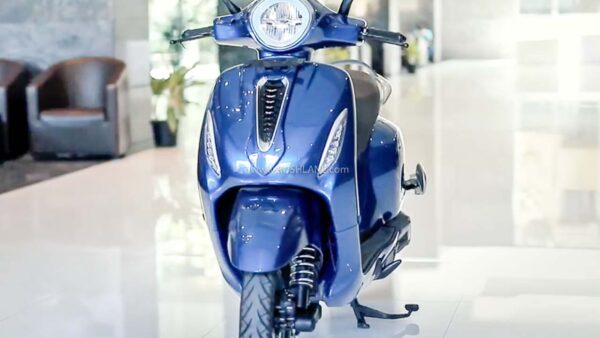Upcoming electric two-wheelers from Bajaj will be based on the Chetak platform and technology

After securing a win in the form of Chetak electric scooter, Bajaj Auto is looking to expand its EV lineup in the next few years. A test mule of Chetak based electric scooter has already been spied on test near the company plant in Pune.
It should be noted that Bajaj created a separate business arm for electric two-wheelers called Chetak Technology that will spearhead their new EV expansion. As of now, the Chakan-based manufacturer has only one two-wheeler offering in the electric mobility space in the form of Chetak.
Bajaj Electric Scooter Lineup Expansion
Bajaj intends to add new products in the low- and mid-speed segments in association with the Yulu brand. For the uninitiated, Yulu is an EV manufacturing company that saw investment from Bajaj a few years ago. While Bajaj has revealed plans, it is yet to reveal any specific details regarding upcoming electric scooters.
However, it is likely that the upcoming e-scooter could be based on the Chetak platform. As of now, Chetak is available only in a few cities and Bajaj wants to expand availability of the electric scooter to at least 100 centres in the next few years. However, there are various challenges related to supply chain issues that are posing a hindrance to this expansion.

Challenges Faced by OEMs
Irregularities in supply chain in the past two years have mostly been caused due to two major factors- shortage of semiconductor chips and Covid-19 pandemic. In addition to these, the Russia-Ukraine war has also contributed to global economic fallout. Sharma conceded that given the current scenario, it would take at least 12-18 months before normalcy is restored.
Bajaj is working on addressing supply chain issues since the supply chain is unable to keep up with rising demand. However, the biggest impact has been created by total cost of ownership for EVs which makes it harder for consumers to switch from conventional IC engine models to battery-powered models. This has also led to an impact on the cost of cells that make up the battery pack.
High Price of EVs
Operating cost of EVs is primarily driven by initial ownership cost of batteries which is very high as of now. To counter this, the Government of India is looking to establish cell manufacturing facilities within the country to bring down production costs of batteries and in turn, result in lowering of prices for EVs.
Bajaj Auto has its presence in over 70 countries and around 50 percent of the company’s business comes from there. There are various levels of EV penetration in these countries and the company is looking to mark its presence there as well. Bajaj believes that 30-40 percent of overall two-wheeler sales will come from EVs in the next 5-7 years.

